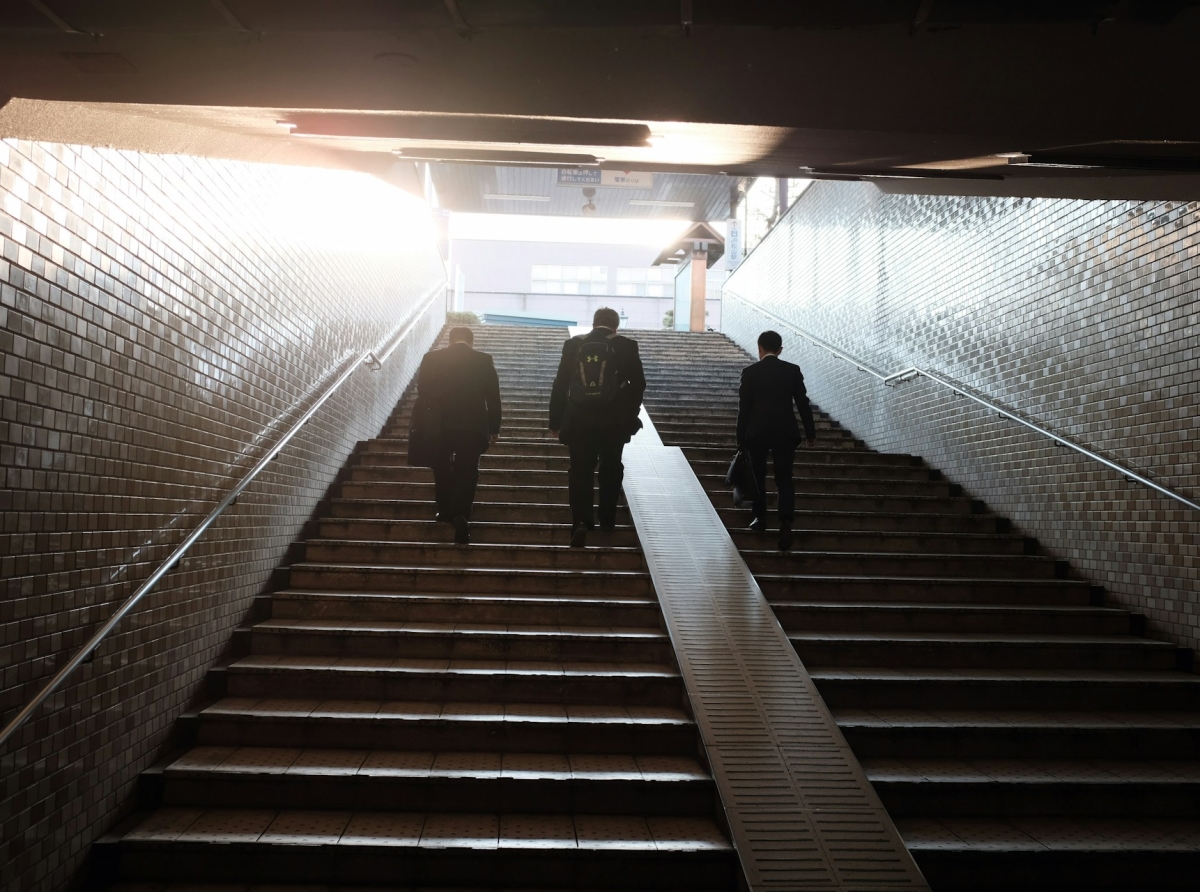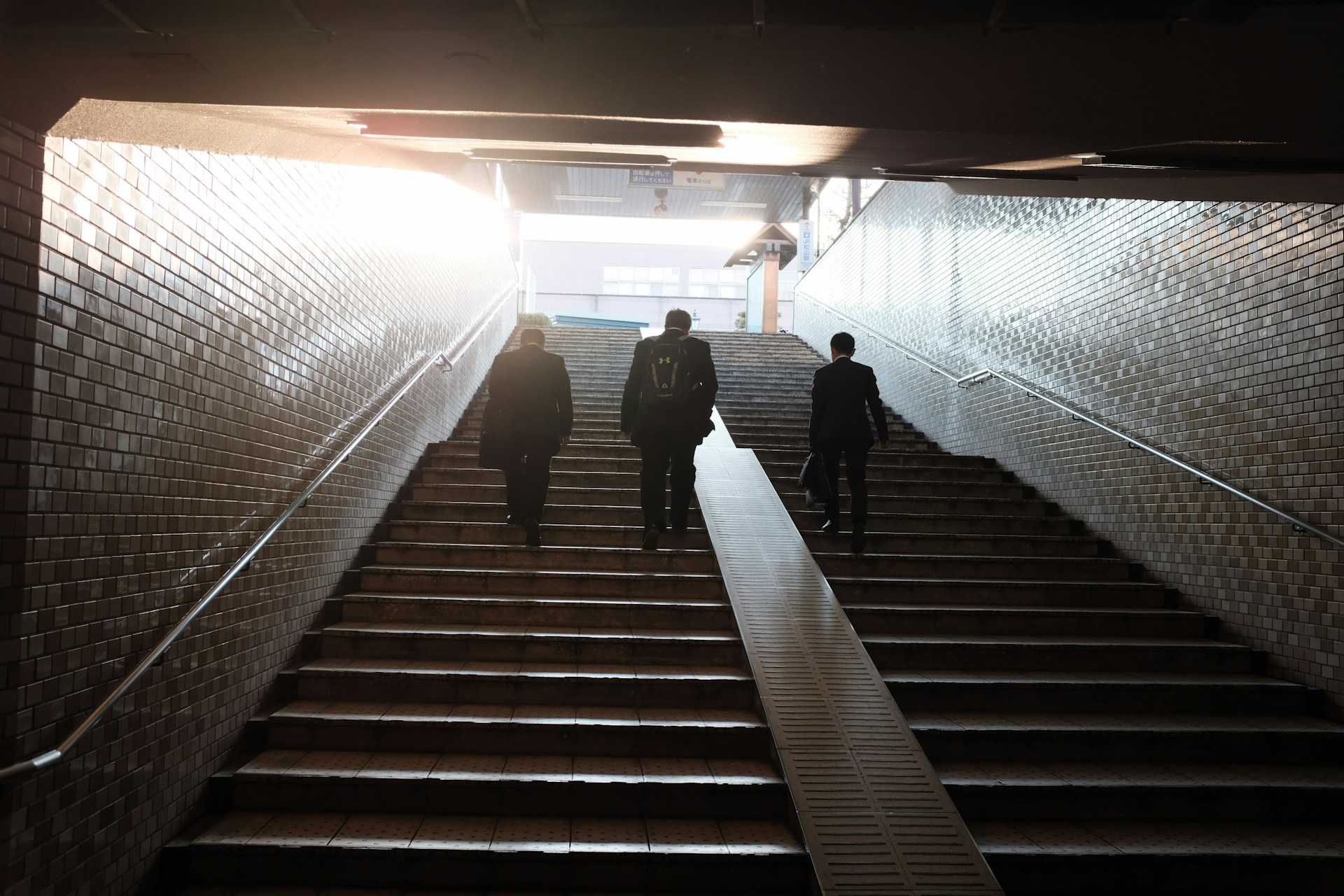Jobs at Risk of Disappearing in the Next 20 Years Due to AI

Jobs at Risk of Disappearing in the Next 20 Years Due to AI
Artificial intelligence (AI) is poised to revolutionize the global workforce, and while many experts view its impact as largely positive, there is growing consensus that certain professions face significant risks of obsolescence in the coming decades.
A recent report by the Pew Research Center sheds light on how AI will reshape jobs, economies, and industries, revealing both optimism among AI experts and lingering concerns about job displacement.
A recent report by the Pew Research Center sheds light on how AI will reshape jobs, economies, and industries, revealing both optimism among AI experts and lingering concerns about job displacement.

Jobs at Risk of Disappearing in the Next 20 Years Due to AI
Optimism vs. Realism: The Dual Narrative on AI's Impact
The Pew Research Center surveyed over 1,000 AI experts—researchers and professionals actively engaged in AI development—as well as more than 5,400 adults across the United States. The findings reveal a stark contrast between expert perspectives and public sentiment regarding AI's influence on work and the economy.Experts Are Optimistic:
A majority (56%) of AI experts believe AI will have a net positive impact on the U.S. over the next two decades. They foresee AI enhancing productivity, streamlining workflows, and contributing to overall economic growth. Many also expect AI to augment human capabilities rather than replace them entirely.
Public Skepticism Persists:
In contrast, only 17% of the general population shares this optimism. Widespread fears persist that AI could lead to widespread unemployment, loss of interpersonal connections, and ethical dilemmas. These concerns are particularly pronounced when it comes to highly automated roles or those involving repetitive tasks.
Despite these differences, both groups agree on one thing: AI's transformative power cannot be ignored. While experts express cautious confidence in AI's potential benefits, they acknowledge that certain professions are especially vulnerable to disruption.
Professions Most at Risk of Automation
According to the survey, several occupations stand out as being particularly susceptible to AI-driven automation within the next 20 years:1. Cashiers (73% Agreement Among Experts)
Retail cashiers are already seeing their roles diminished due to self-checkout systems and e-commerce platforms. With advancements in computer vision and robotics, fully autonomous checkout processes are likely to become ubiquitous, rendering human cashiers obsolete in many settings.
2. Truck Drivers (62%)
Autonomous vehicle technology is advancing rapidly, with companies like Tesla, Waymo, and TuSimple investing heavily in self-driving trucks. As AI-powered vehicles gain regulatory approval and demonstrate reliability, millions of trucking jobs could vanish. Interestingly, while 62% of AI experts see this as inevitable, only 33% of the general public shares this belief—highlighting a disconnect between expert predictions and public awareness.
3. Journalists (60%)
AI-generated content tools, such as those developed by OpenAI and Google, can now produce articles, reports, and even opinion pieces with remarkable speed and accuracy. While high-quality investigative journalism may remain safe, routine reporting and data-driven content creation are increasingly handled by algorithms, threatening entry-level journalism positions.
4. Factory Workers (60%)
Manufacturing has long been a target for automation, and AI is accelerating this trend. Robots equipped with machine learning capabilities can perform complex assembly line tasks faster and more efficiently than humans. As factories adopt Industry 4.0 technologies, low-skilled factory jobs are expected to decline significantly.
5. Software Engineers (50%)
Ironically, the very developers creating AI systems may not be immune to its effects. Generative AI models like GitHub Copilot and ChatGPT are already assisting coders by automating routine programming tasks. While senior engineers and architects will still play vital roles, junior programmers and those focused on repetitive coding may find themselves replaced by AI tools.
Why Public Perception Differs from Expert Opinion
One notable finding from the Pew study is the disparity between expert assessments and public perceptions. For instance, while 62% of AI experts predict truck driver jobs will disappear, only 33% of the general population agrees. This gap reflects differing levels of familiarity with emerging technologies.Jeffrey Gottfried, associate director of research at Pew, explains: "Experts tend to base their predictions on technical feasibility and industry trends, whereas the public often relies on anecdotal evidence or media portrayals." He adds that public anxiety stems from uncertainty about how AI will affect personal livelihoods and social interactions.
Potential Benefits of AI Across Industries
Despite apprehensions about job losses, both experts and the public recognize areas where AI could deliver substantial benefits:
1. Healthcare
AI holds immense promise for improving diagnostics, personalized medicine, and patient care. From detecting diseases through medical imaging to predicting treatment outcomes, AI applications in healthcare are widely supported by both groups.
2. Education
Adaptive learning platforms and virtual tutors powered by AI could enhance educational accessibility and effectiveness. However, skepticism remains about whether AI can truly replicate the emotional support provided by human teachers.
3. Environmental Sustainability
AI-driven solutions for climate modeling, energy optimization, and resource management are seen as critical tools for combating environmental challenges.
Conversely, both experts and the public express doubts about AI's ability to improve news credibility and election coverage. Concerns about misinformation and biased algorithms dominate discussions in this domain.
Ethical Challenges and Regulatory Concerns
A recurring theme in the Pew report is the lack of trust in institutions tasked with overseeing AI development. Neither experts nor the public feel confident that governments or corporations will regulate AI responsibly. Key issues include:Bias and Fairness: Ensuring AI systems do not perpetuate discrimination or inequality.
Transparency: Making AI decision-making processes understandable and accountable.
Privacy: Protecting individuals' data from misuse or unauthorized access.
Both groups advocate for greater user control over AI implementations in daily life, emphasizing the need for ethical guidelines and robust oversight mechanisms.
Preparing for an AI-Driven Future
To mitigate the negative consequences of AI-driven job displacement, stakeholders must take proactive measures:1. Reskilling and Upskilling Workforces
Governments, businesses, and educational institutions should invest in training programs to equip workers with skills relevant to an AI-dominated economy. Focus areas might include data analysis, digital literacy, and creative problem-solving.
2. Encouraging Human-Centric Design
AI developers should prioritize designs that complement human strengths rather than replace them entirely. Collaborative robotics (cobots) and augmented intelligence systems exemplify this approach.
3. Strengthening Social Safety Nets
As automation eliminates certain jobs, policymakers must explore ways to support displaced workers financially and emotionally. Universal basic income (UBI), expanded unemployment benefits, and mental health resources could all play a role.
Conclusion: Balancing Progress and Protection
While AI offers unprecedented opportunities for innovation and efficiency, it also poses significant risks to traditional employment structures. Occupations ranging from cashiers to software engineers face varying degrees of vulnerability, underscoring the urgent need for adaptive strategies.By fostering collaboration between experts, policymakers, and the public, society can harness AI's potential while safeguarding against its pitfalls. The challenge lies in striking a balance—embracing technological progress without sacrificing human dignity or economic stability.
As Jeff Gottfried aptly summarizes, "The future of AI isn't just about what machines can do; it's about what kind of world we want to build."









Report
My comments